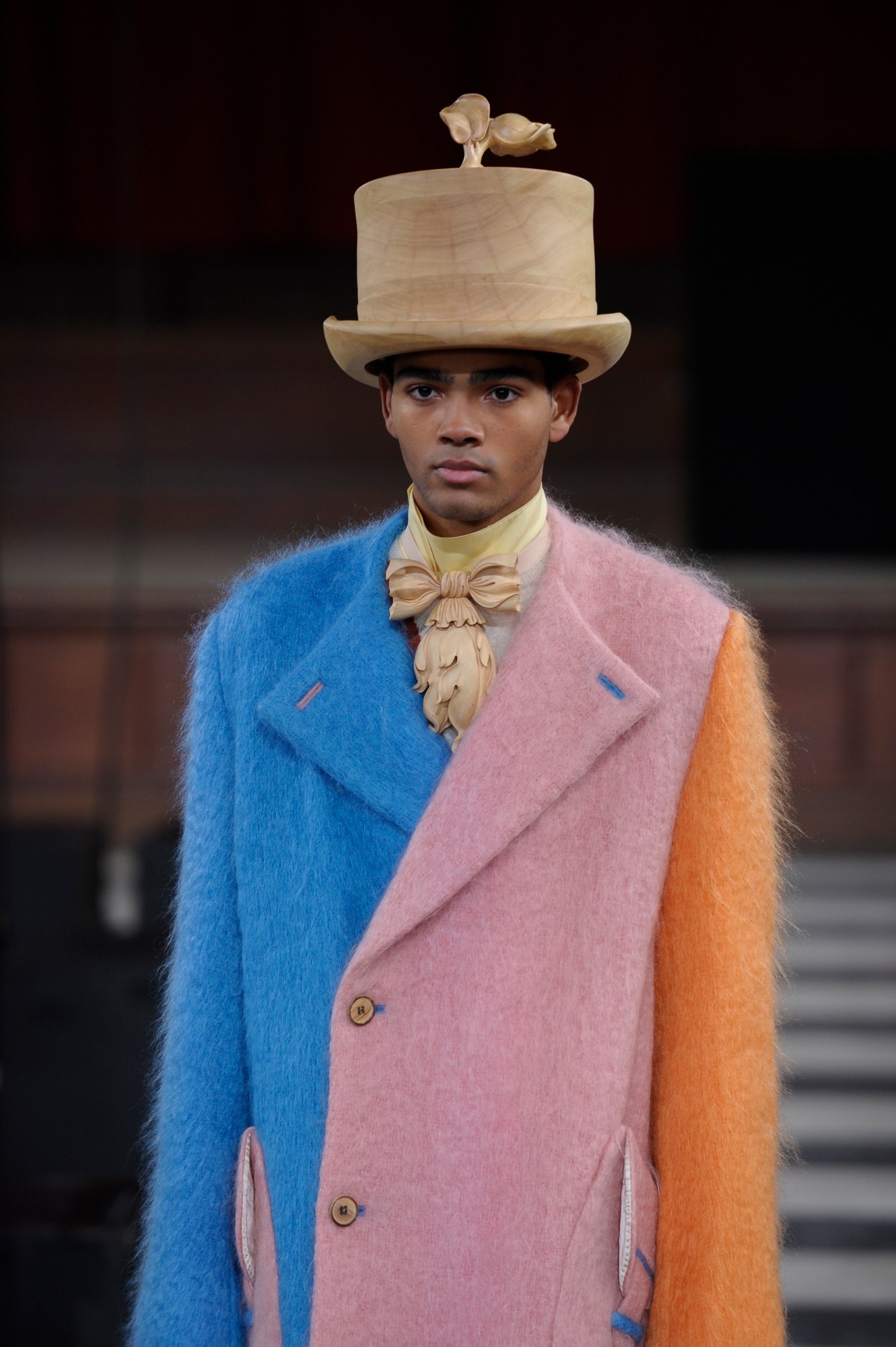“These collections celebrate and reflect fashion’s borderless nature,” Professor Frances Corner OBE, Head of London College of Fashion, explained in the show notes. “Fashion’s ideas and influences will always be free to travel and these collections highlight its unbounded, global nature. At a time when we are being required to think closely about national boundaries, LCF are taking the opportunity to redefine them for fashion.” From Ying Yi Lu’s Victorian-styled doll boys to Xu Bo’s handcrafted Wild Things and Hengmin Lu’s Mao-inspired functionality, the ten designers blurred borders and ignited imaginations. Against the backdrop of the autumn/winter 18 show season, the future of fashion tell us how they’ll shape the future of fashion.
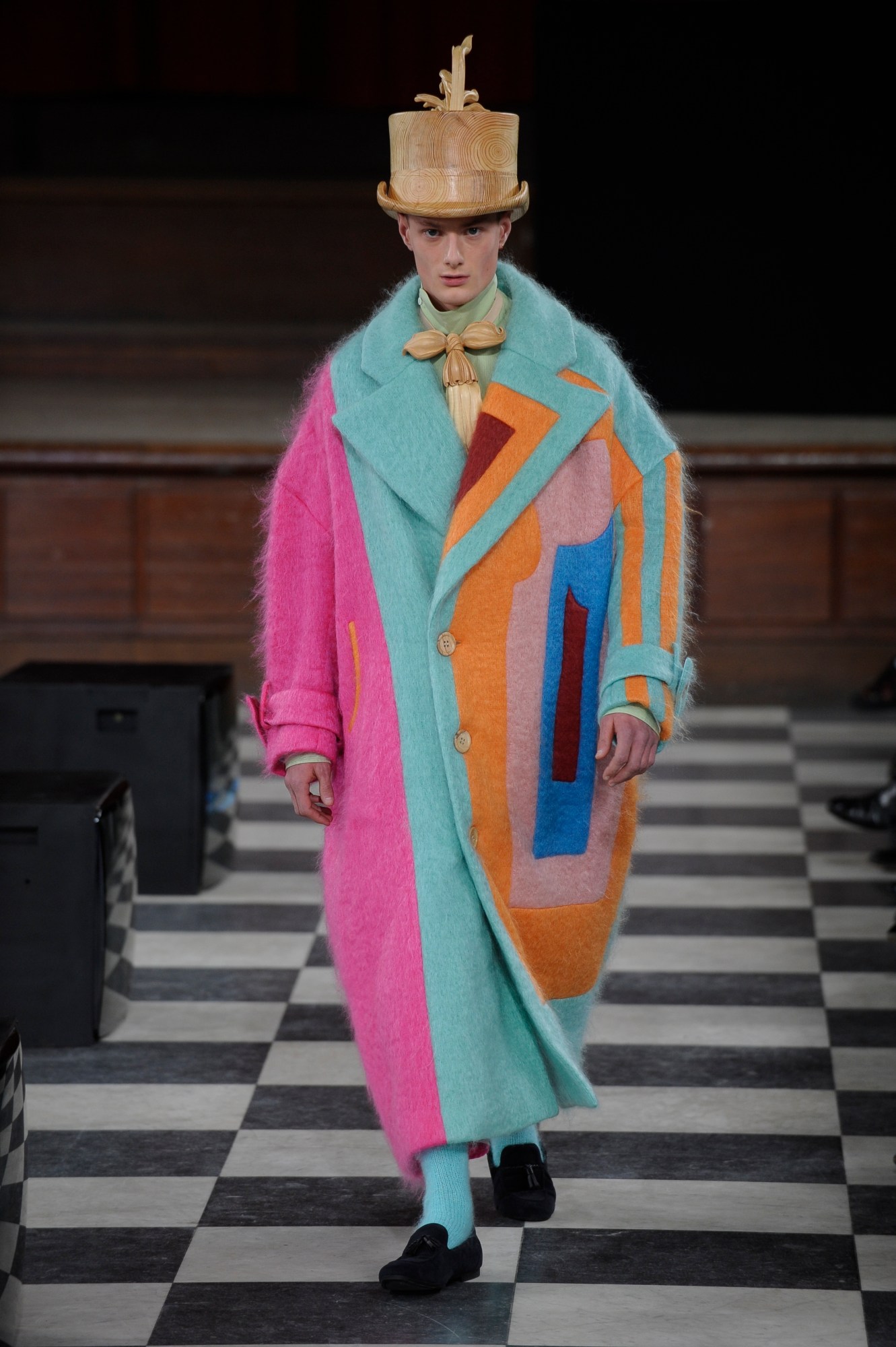
Yixin Zhang
“I’m excited about how the industry is shifting to becoming more personal — providing people with more bespoke products. Consumers want items that no one else has — smaller producers are more attractive — people want to be able to express their personal identities and this is a great opportunity for emerging designers to provide that service. I’d like to see the industry take more risks, showcasing more innovation and creativity and to move away from collections which are entirely motivated by commerciality. For the next generation of fashion student, my advice is don’t be scared to try something new and to challenge yourself — don’t follow the crowd or copy what’s gone before — keep trying and you will get there!”
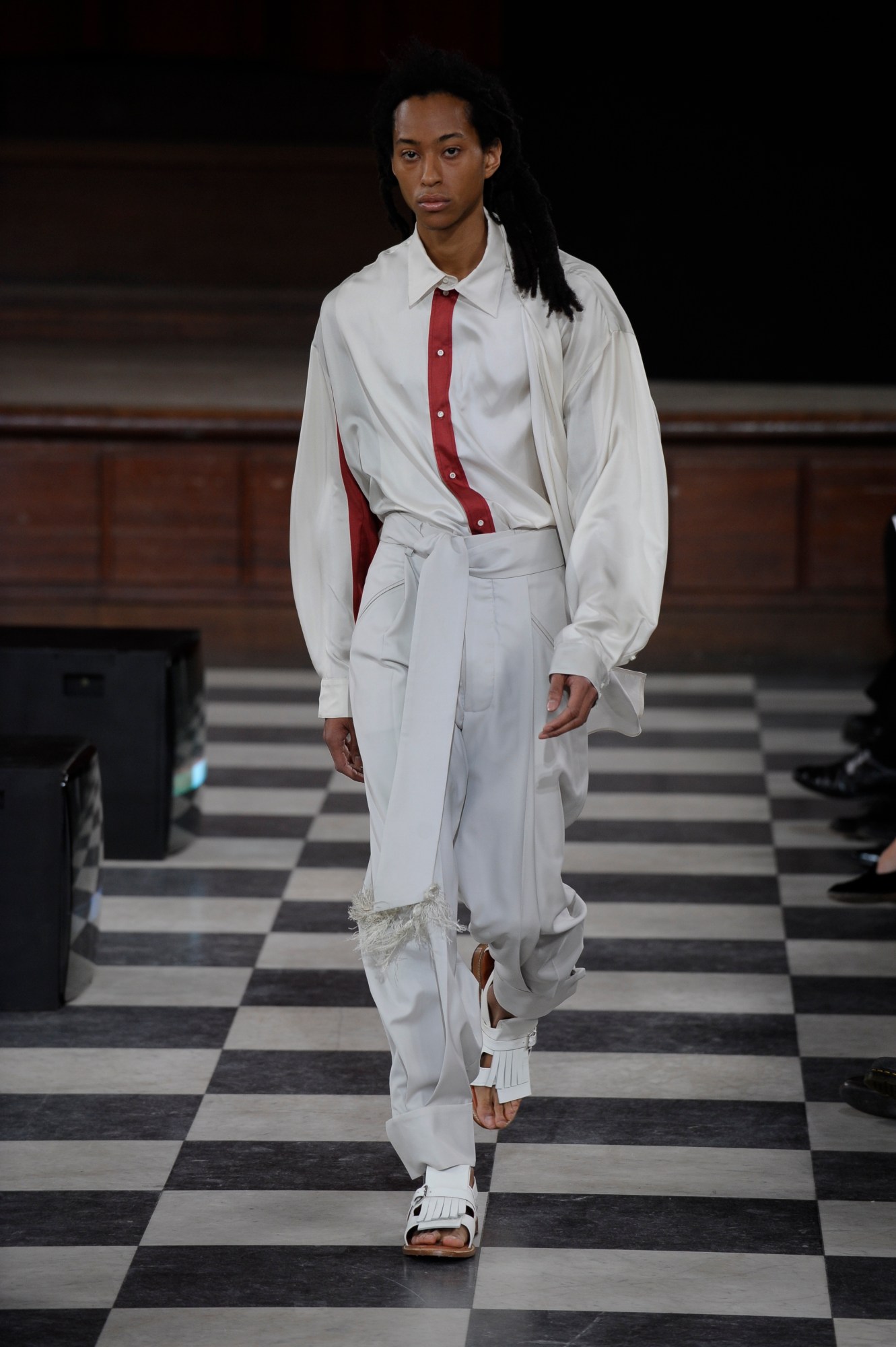
Hanni Yang
“I’d love to change the consumer’s perception of fashion –- and help them understand the complexity and detail that goes into each garment and the amount of intricate work in each piece — from the fabric to embellishments. I would love people to understand the process more and have a greater understanding of why some clothes are more expensive than others –- and why it’s important to treasure your clothes. Personally I’m excited about the future — eventually I’d like to set up my own brand — but to begin with I’d like to gain experience within a luxury house.”
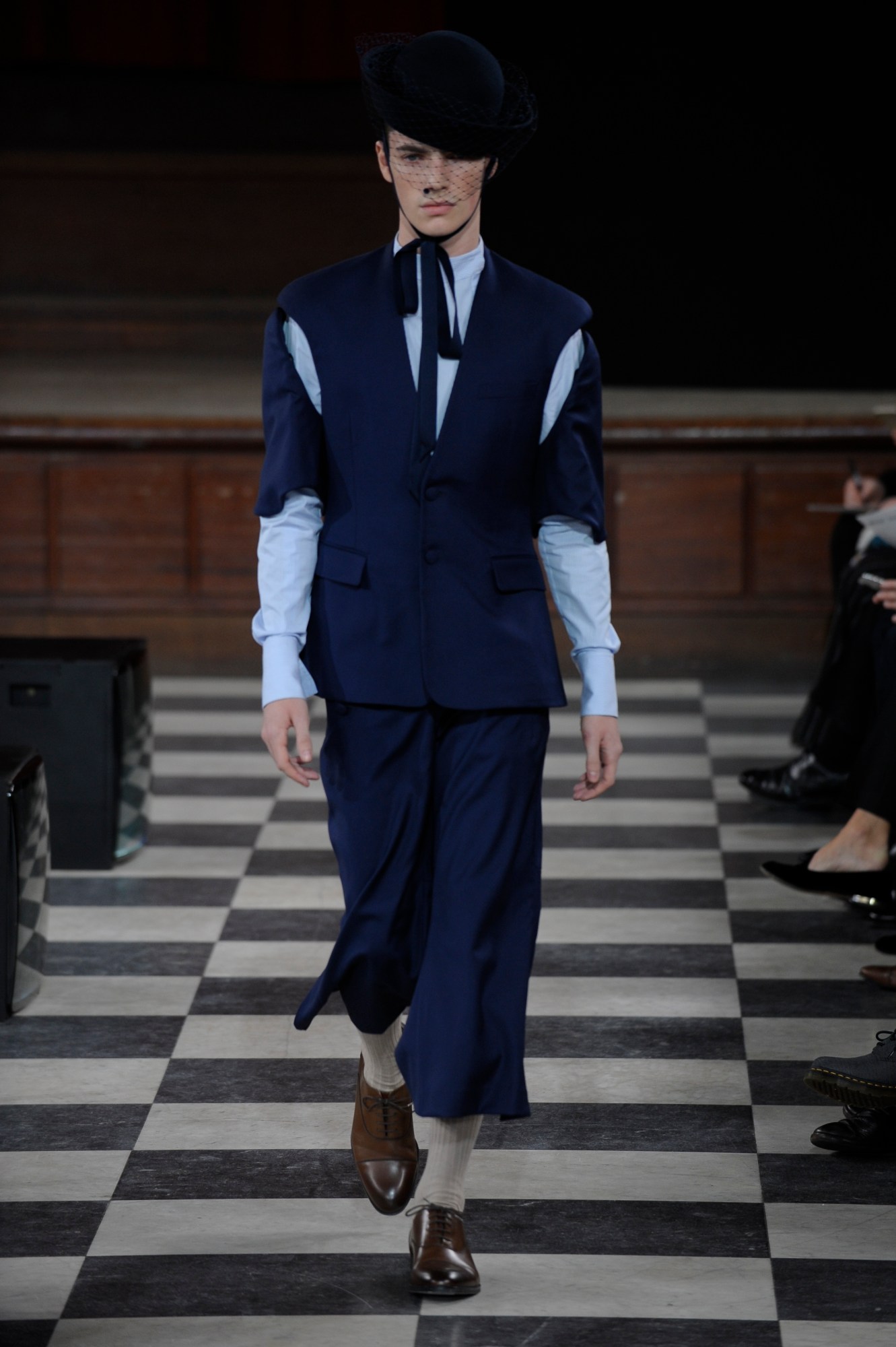
Yingyi Lu
“The rise of fast fashion has shifted the focus away from detailing, functionality and developing new techniques to marketing and consumption. I would like to shift the focus back onto the clothes and produce products that enhance people’s lifestyles –- clothes that aren’t throwaway.”
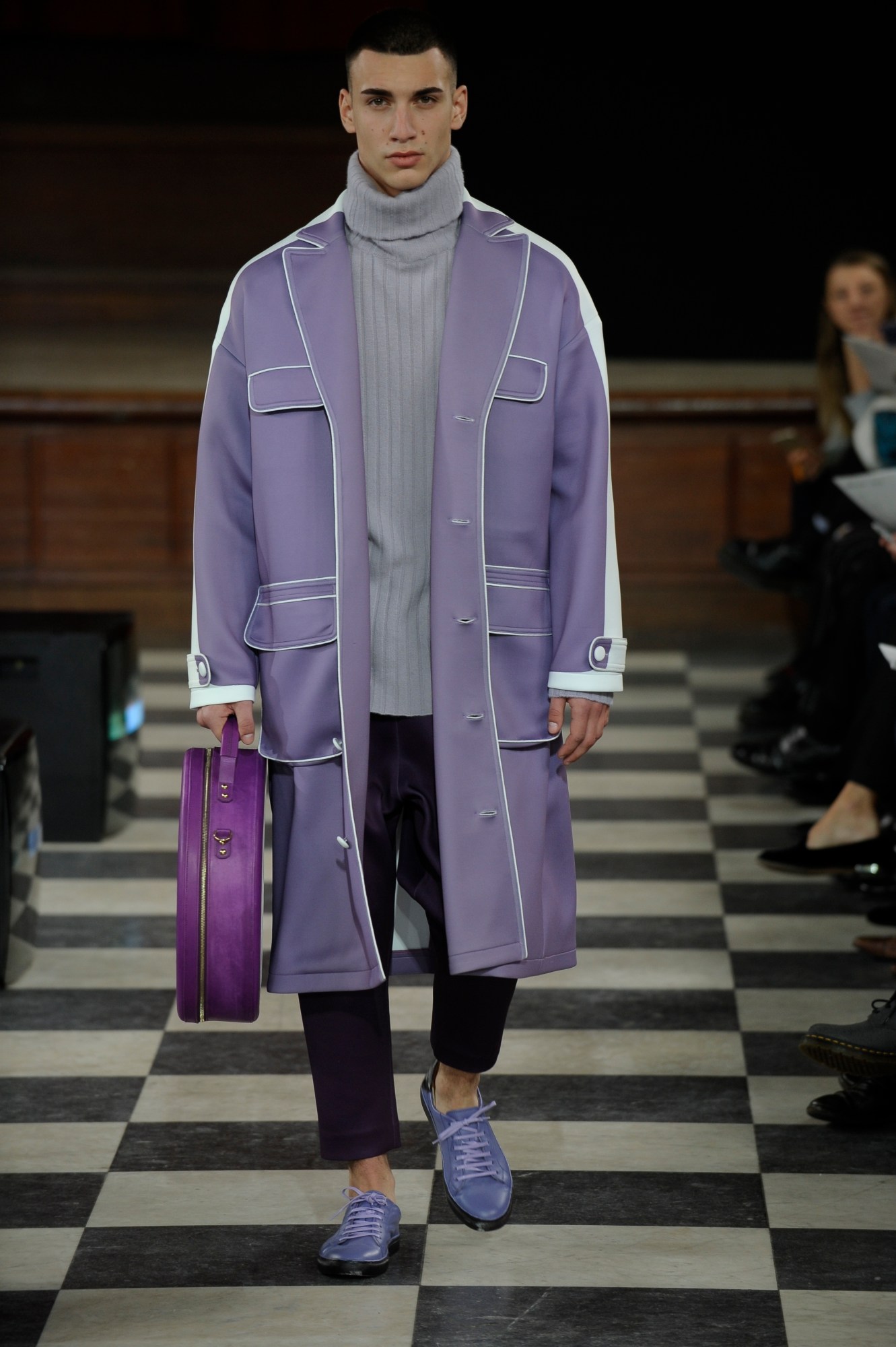
Han Xu
“I’m hopeful that more and more young designers will have the opportunity to express themselves because it encourages diversity in fashion. However, there needs to be more support for young designers. For now, the most important thing for the next generation is to keep our passion. The road of design is never smooth, and only with enough enthusiasm can we design it well.”
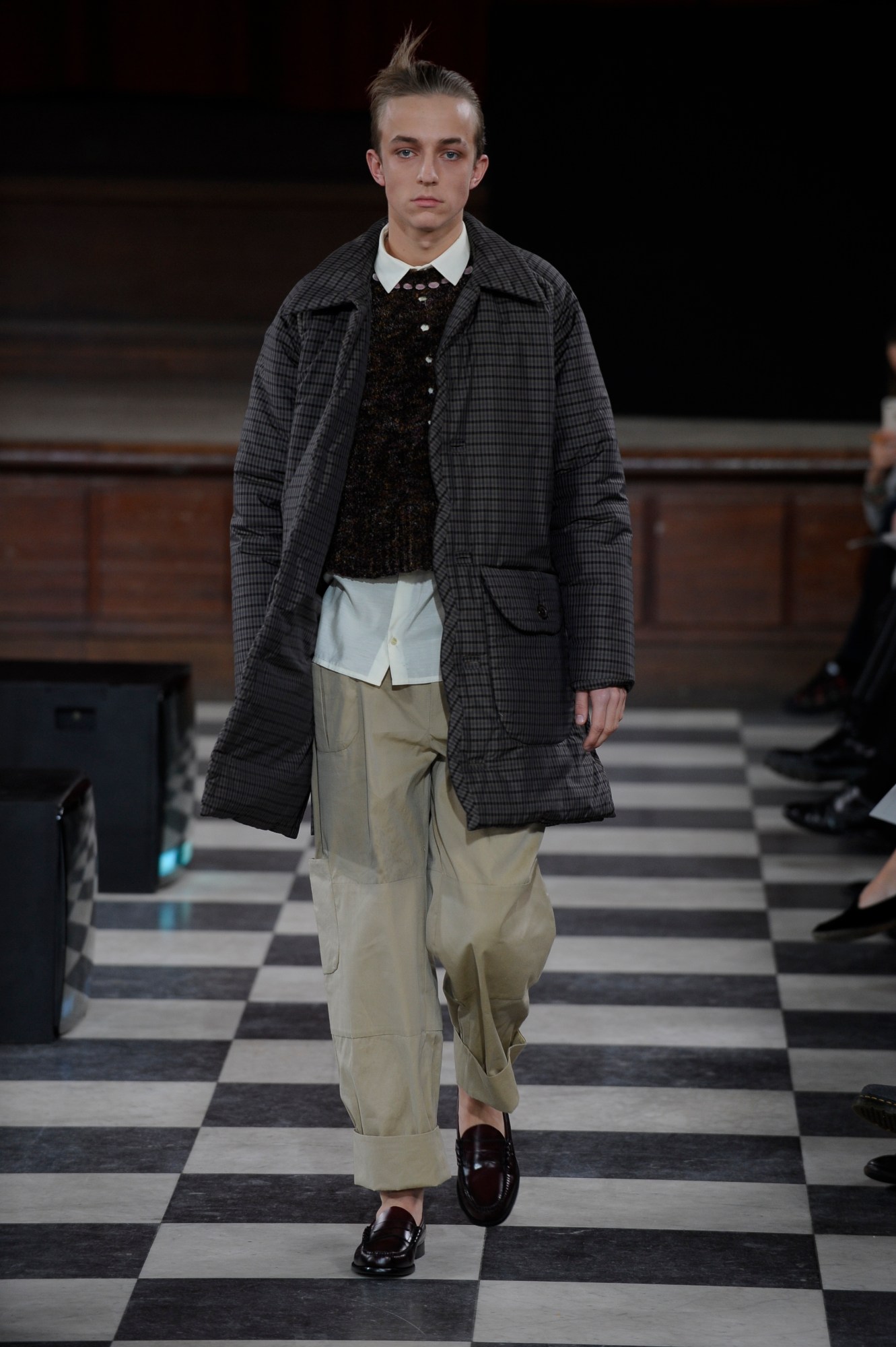
Coline Marie Morgane Gauthier
“We must all care more about sustainability and the challenge is convincing the consumer to want and buy less. However, I believe people will start to pay more attention to what they wear and how it has been made. It’s very exciting to be a part of a new system, to help build a new way of creating and consuming for a more sustainable world. Everything in fashion is so quick, we are constantly creating the new, there is no time to create, no time to live, no time to be bored, no time to think. I wish it would slow down, simply to give ideas room to breathe. The next generation need to stay curious about everything, look ahead and speak up!”
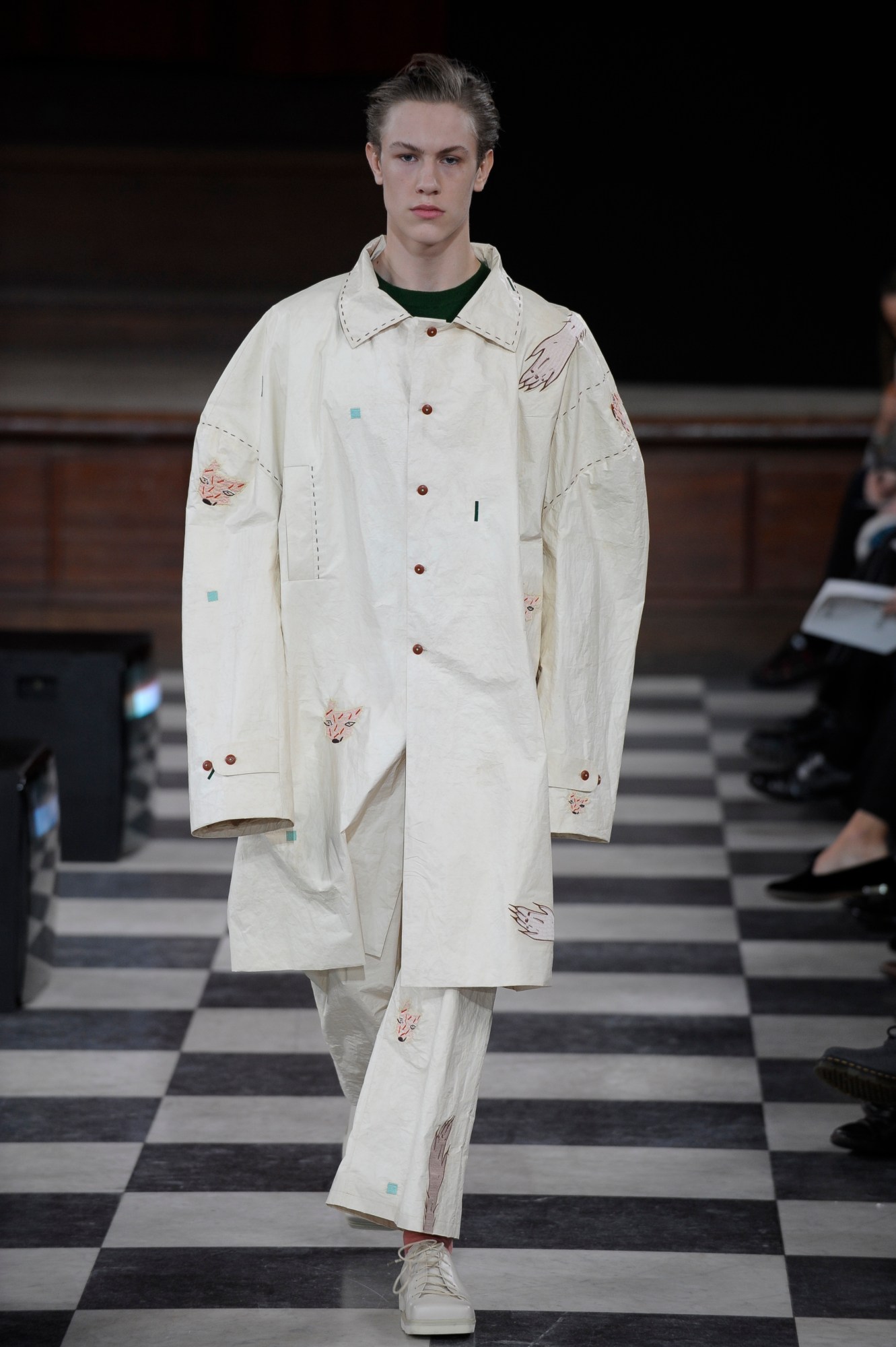
Wenya Huang
“Fashion is becoming increasingly commercialised. I hope fashion returns to nature and we think more carefully about the whole lifecycle of a product from crop to shop. My advice to the next generation of fashion students is first and foremost do what you like, in fashion you will never be able to please everyone!”
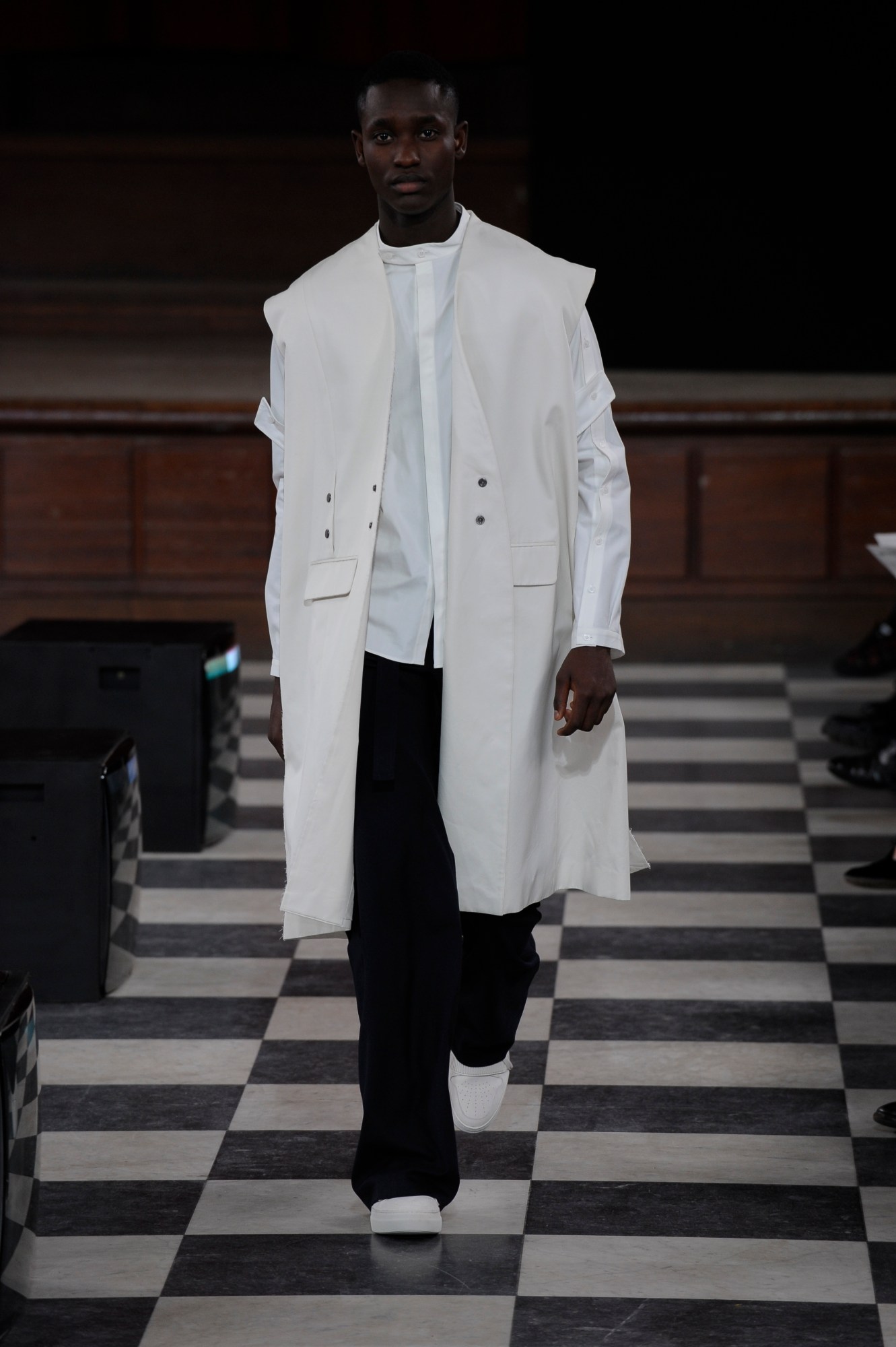
Hengmin Lu
“The future of the fashion industry is going to develop in two directions. One is technology — I think we will see more and more use of tech applied to manufacturing. The other is growth in handmade products -– craftsmanship and bespoke products will become increasingly luxurious as people move away from fast fashion. If I could change one thing, it would be to give every young designer a platform for their work and allow their ideas to be showcased -– it’s so hard for new designers to break into the industry and this would be a way of giving more people a chance of success.”
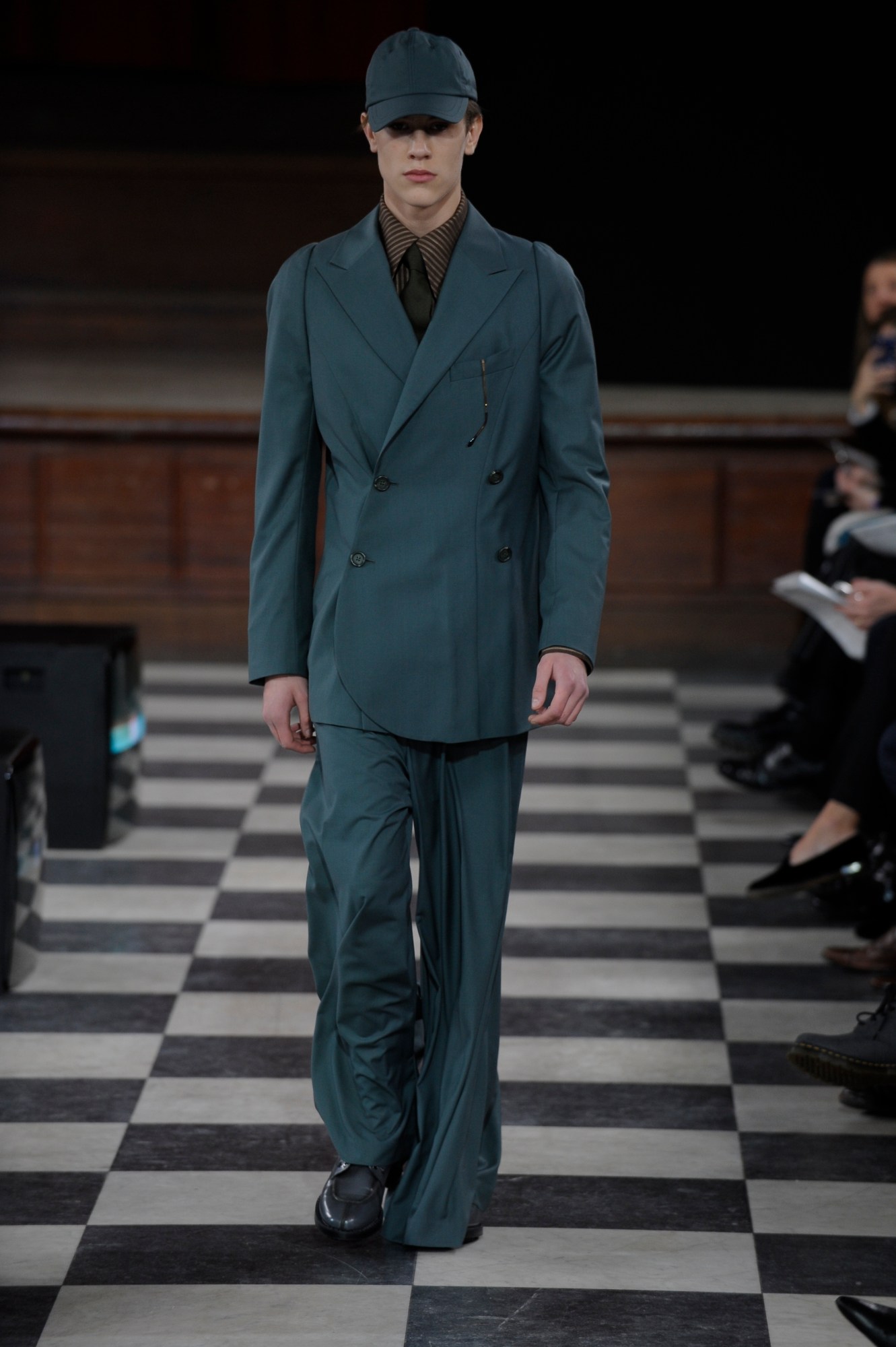
Sohyeon Park
“The future of fashion has to involve the industry becoming more sustainable. In Korea, I saw first-hand how wasteful and harmful fast fashion has become. Factory workers are routinely mistreated — the intensity of labour and the damage to the environment are serious problems that have to be tackled. If I could change one thing about the industry today, it would be to push for higher ethical standards — the way that some factory workers are forced to work under impossible conditions — with no living wage and unmanageable deadlines to meet. I would enforce stricter regulations so that people are treated with dignity and respect. What excites me about tomorrow is the number of new designers coming through. I am also interested about how geographically, we see trends developing — Scandinavia and particularly Denmark are really cool right now — but I’m looking forward to seeing which places emerge next.”
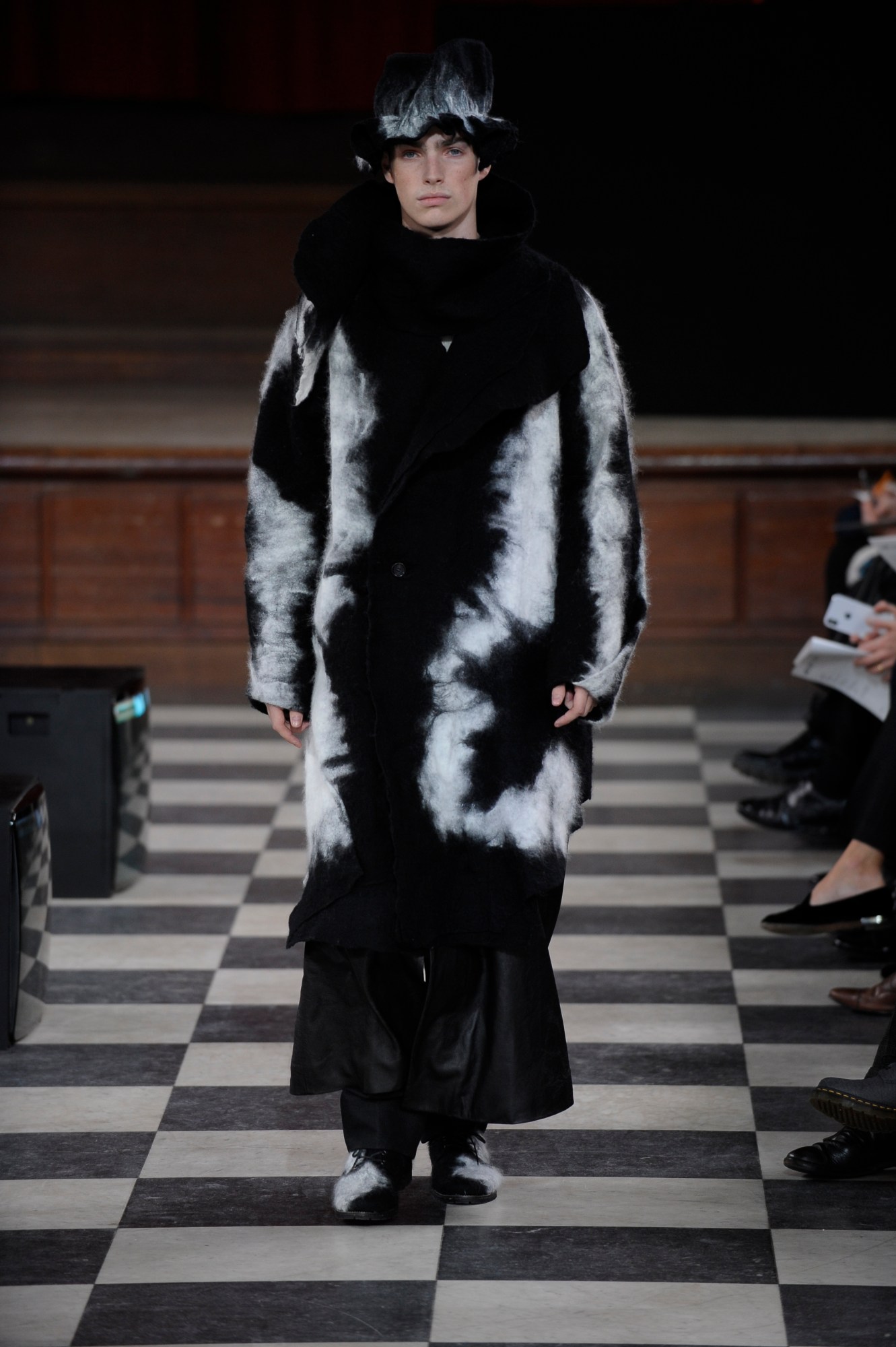
Ming Lai Lee
“I think we will see more and more independent designers providing a greater range and diversity of collections for consumers who want to express their individuality and personal style -– the industry will become less generic and more focused on the consumer.”
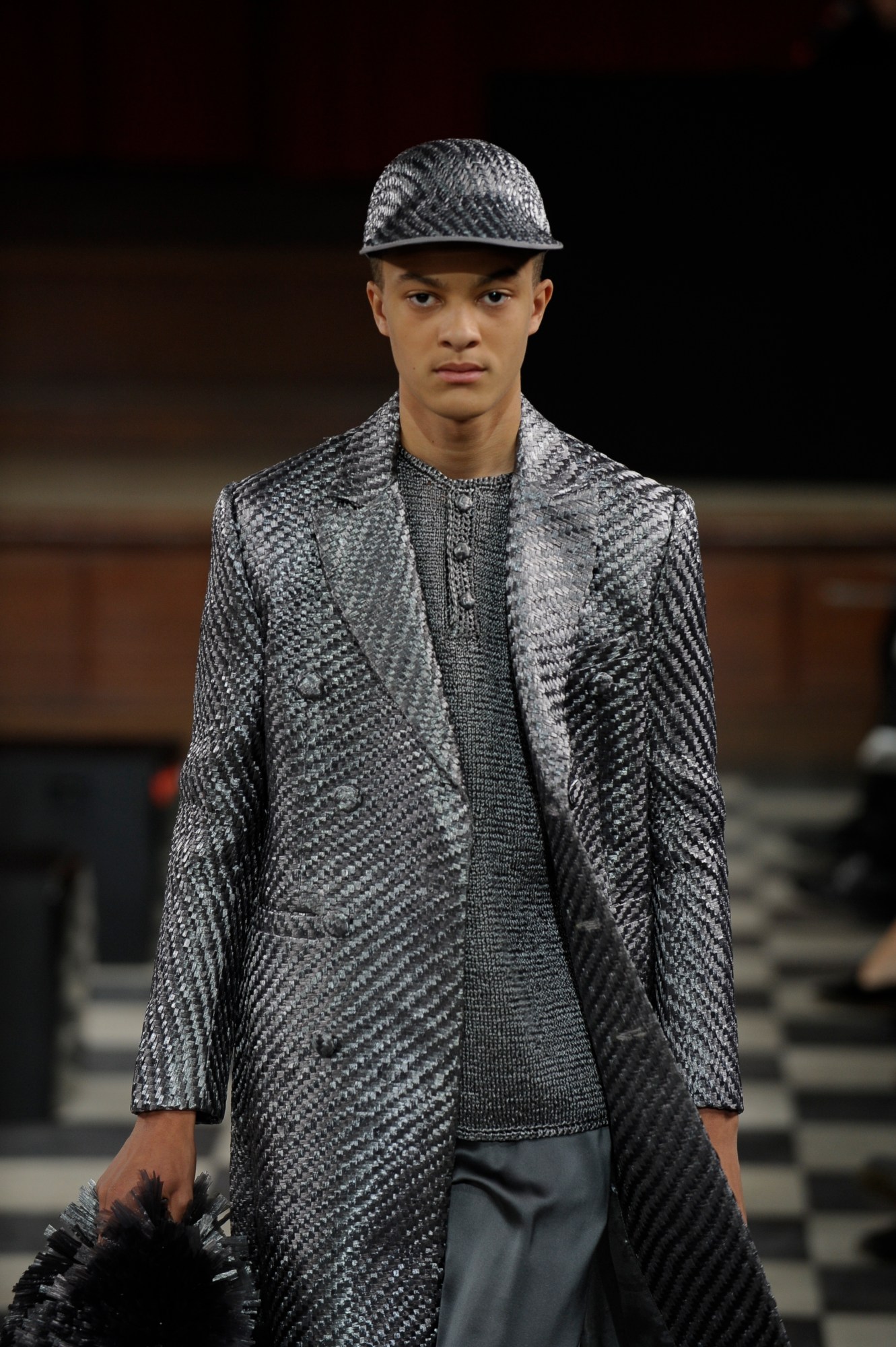
Xu Bo
“Sustainability is one of the biggest trends for the future — I think this will take many different forms, from new technology and innovation in fabrics to manufacturing techniques. For me, fashion needs to be SLOWER! Ideas need time to develop — you need time to experiment — there is no room in the current system for the whole process. At LCF I’ve spent a year experimenting and developing my final collection but in the industry I will have to get used to designing in 3-4 months!”
